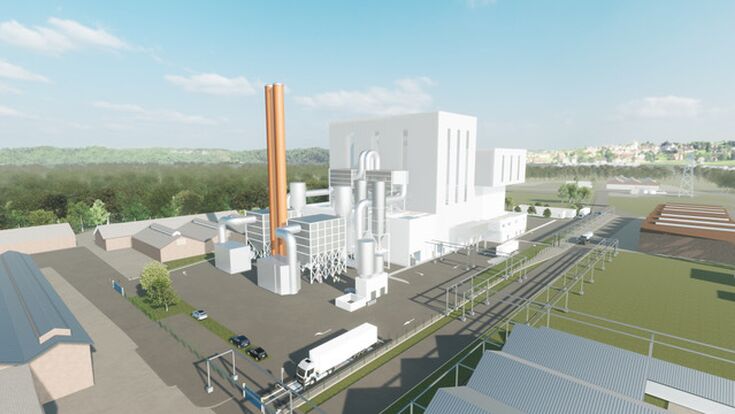Refuse Derived Fuel : Solvay and Veolia launch energy transition project

Solvay and Veolia are launching the construction of an industrial energy transition project, "Dombaslé Energie”, which aims to replace coal with refuse-derived fuel (RDF) for the production of clean and competitive energy for the historical Dombasle-sur-Meurthe plant. The project will ensure the plant's competitiveness and reduce CO2 emissions by 50%.
The project consists of replacing three coal-fired boilers with a boiler room equipped with two furnaces running on RDF, produced from waste that cannot be recycled, allowing to halve the carbon footprint of the industrial activity and stop importing 200,000 tons of coal annually. The Dombasle-sur-Meurthe site will have a cogeneration unit that uses 350,000 ton of RDF per year, supplied by Veolia as of 2024.
The new facility, to be built by Solvay and operated by Veolia, will have a capacity of 181 megawatts (MW) thermal power and 17.5 MW electrical power, which will be reused for the industrial process. The project will require an investment of €225 million and is scheduled to come on stream in 2024.
A first in France, Dombaslé Energie will create a circular economy virtuous loop and in particular:
- Cut the site's environmental footprint (reduction of current CO2 emissions by approximately
50% or 240,000 tonnes of CO2 per year); - Stop the use of fossil fuels by replacing coal imported from abroad with RDF produced in
France, primarily from the Grand Est region and neighboring regions; - Create a new outlet for waste that was initially non-recyclable and which will be transformed
into green energy; - Reduce water usage by 7%.
This conversion of the plant offers a real advantage in the context of volatile fossil fuel prices and the taxes imposed by European regulations on the use of coal. This gain in competitiveness allows the site to be sustained and the employment pool to be preserved with 1,000 direct and indirect jobs.
This project has benefited from the support of the Grand Est region and ADEME
